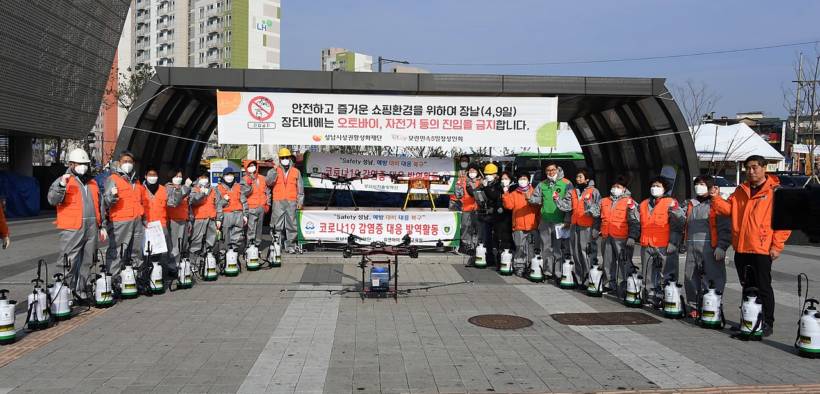South Korea’s Coronavirus Tracking System Potentially Outs Gay Man, Exposes Privacy Flaws

“If criticism becomes too much, people will avoid getting tested. And when infected people go into hiding, controlling the outbreak will be much harder.”
South Korea received plaudits for its quick and effective response to coronavirus, but a new potential outbreak has caused great concern amongst public officials.
After several weeks of reporting fewer and fewer new coronavirus cases, the country reported 34 and 35 new cases Sunday and Monday, many traced back to the capital Seoul’s vibrant nightlife. The Korean CDC announced the outbreak had primarily affected LGBTQ bars with 86 cases being tracked back to the nightclub outbreak.
After a 2015 outbreak of MERs that killed 38 people in South Korea, the country beefed up its pandemic response and ability to invade personal privacy in order to trace a virus.
Korea’s current test, track and trace system divulges patients’ age, gender, nationality, and occupation online to allow citizens to better protect themselves. But the policy is contingent on immense privacy violations.
The latest nightclub outbreak was traced back to an asymptomatic 29-year-old man who visited five nightclubs and two convenience stores. In a socially conservative country, the fact health officials and media emphasized that it occurred in a gay bar has many fearing that stigma will out members of the LGBTQ community and lead to people not seeking testing.
Breach of Privacy
Other incidences have already exposed flaws in South Korea’s robust tracing regime. One patient reportedly broke his quarantine to have a meal with his sister-in-law sparking rumors the pair was having an extramarital affair.
Many Koreans have called for stricter privacy and less emphasis on extemporaneous details that can easily identify patients to the public.
“Many people said they felt like they themselves had become the pathogen, and it hurt them to feel other people avoiding them even after they had recovered,” Kim Myoung-hee from the Seoul-based nonprofit People’s Health Institute told NPR.
One professor from Busan, South Korea detailed the stigma he faced after recovering from the coronavirus and said he avoids the elevator in his building as not to disturb his neighbors.
“If criticism becomes too much, people will avoid getting tested. And when infected people go into hiding, controlling the outbreak will be much harder,” said Kim.
The United States has also seen some form of stigmatization which could adversely affect some people’s likelihood to receive a test. A Pentagon spokesperson confirmed a leaked memo from the US military department outlining that coronavirus survivors would not be allowed in the military.
Homophobia
Homosexuality is not illegal in South Korea, but it carries a social stigma, seen plainly in some citizens’ response to the news.
Some gay people have been outed on dating apps by vigilantes spurred on by the growing media narrative. Rumors have also been circulating that prominent social media personalities are hunting down gay people online to out them.
“LGBT communities already contend with threats, intimidation, and eruptions of physical violence… when you add a tense environment and anger over the coronavirus to the animosity that LGBT people already face, I think threats of violence need to be taken extremely seriously,” said Ryan Thoreson, a researcher on LGBT rights issues at Human Rights Watch to The Financial Times.
Without concern for personal privacy, many are worried that the tracing system could have a negative effect on both the spread of the virus and the personal lives of patients.
But, citizens across the globe are increasingly being given the false choice between mass surveillance and privacy breaches in order to stop the spread of coronavirus. The UK’s Tony Blair Institute for Global Change argued mass state surveillance is “a price worth paying” to stop the coronavirus.
Half-baked tracing apps could leave the door open for more unwanted surveillance in the future or damage countries’ response to the pandemic if tracing is ineffective.















